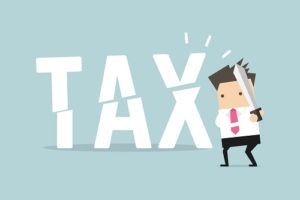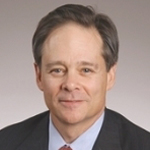The Income Taxation of IDGT Sale Promissory Notes
An In-Depth Review of the Income Tax Aspects from 3 Key Vantage Points:
During Life, At Death and After Death
 One of the most difficult areas of estate planning is the intersection of income tax and estate tax. While many practitioners recognize that the Intentionally Defective Grantor Trust (IDGT) sale is the cornerstone of planning for larger estates, the income tax implications are not as clear as we would like them to be. This area of planning can become very complex as we are forced to define the taxation during the grantor’s life, at the time of the grantor’s death, and after the grantor dies.
One of the most difficult areas of estate planning is the intersection of income tax and estate tax. While many practitioners recognize that the Intentionally Defective Grantor Trust (IDGT) sale is the cornerstone of planning for larger estates, the income tax implications are not as clear as we would like them to be. This area of planning can become very complex as we are forced to define the taxation during the grantor’s life, at the time of the grantor’s death, and after the grantor dies.
This is why we have brought in nation’s leading tax and estate planning experts, Jonathan G. Blattmachr, Esq., and Robert S. Keebler, CPA/PFS, MST, AEP (Distinguished), CGMA., for a very timely and informative presentation entitled, “The Income Taxation of IDGT Sale Promissory Notes During Life, at Death, and after Death”.
In this 92-minute presentation, Jonathan and Bob will cover the following:
- Basis of gifted property and property in death
- The special rules for IRD
- The impact of Section 691(a) of the Code
- How Sections 1014 and 1015 work
- Examining the taxation of IDGT sales during life, as wells as examining the transactions subsequent to death
- A look at the two pivotal cases in the world of IDGTs—what they mean and how they impact the planning we do for clients!
- Planning for the death of the Grantor with ordinary installment notes and with SCINs
- What happens at death when outside debt is greater than the taxpayer’s basis
- A look at some alternative theories adopted by the leading experts, including asymmetrical tax treatment of a basis increase and no gain
- Note basis at death and after death
- Understanding CCA 200923024 and no recognition at death
- Review of PLR 201245006 which provided for asymmetrical tax treatment
- IRS guidance project outstanding
- And much more!
Your purchase includes an instantly downloadable video and audio recording and PDF handout materials. A PDF transcript is available as an add-on for an additional fee.
- Program Title: The Income Taxation of IDGT Sale Promissory Notes During Life, at Death, and after Death
- Speaker: Jonathan G. Blattmachr, Robert S. Keebler
- Duration: 92 Minutes
Purchase
ABOUT THE SPEAKER
Jonathan G. Blattmachr
J.D., LL.M. (Taxation)

Jonathan G. Blattmachr brings over 35 years of experience in trusts and estates law. He is a retired member of Milbank Tweed Hadley & McCloy and the Alaska, California and New York Bars. Mr. Blattmachr has been recognized as one of the country’s most creative trusts and estates lawyers. He writes and lectures extensively on estate and trust taxation and charitable giving and has authored or co-authored five books and over 500 articles on estate planning topics. He has served as a lecturer-in-law of the Columbia University School of Law and is an Adjunct Professor of Law at New York…
Robert S. Keebler
CPA/PFS, MST, AEP (Distinguished)

Robert S. Keebler, CPA/PFS, MST, AEP (Distinguished) is a partner with Keebler & Associates, LLP and is a 2007 recipient of the prestigious Accredited Estate Planners (Distinguished) award from the National Association of Estate Planners & Councils. He has been named by CPA Magazine as one of the Top 100 Most Influential Practitioners in the United States and one of the Top 40 Tax Advisors to Know During a Recession. His practice includes family wealth transfer and preservation planning, charitable giving, retirement distribution planning, and estate administration. Mr. Keebler frequently represents clients before the National Office of the Internal Revenue…
IMPORTANT NOTICE REGARDING CE CREDIT
The Ultimate Estate Planner, Inc. and the presenter are not registered Continuing Education Sponsors and this program is not pre-approved for continuing education credit for any state or regulatory agency.
However, please note that each program includes a Certificate of Completion and, depending on the license and the regulatory agency for which governs a participant’s CE credit, some professionals may be able to self-report his or her participation and receive credit. It is the responsibility of the participant to complete any process necessary to seek self-reported CE credit for his or her participation. By registering for a teleconference (or purchasing on On-Demand program), you understand that CE credit is not guaranteed or warranted by the presenter or The Ultimate Estate Planner, Inc.
